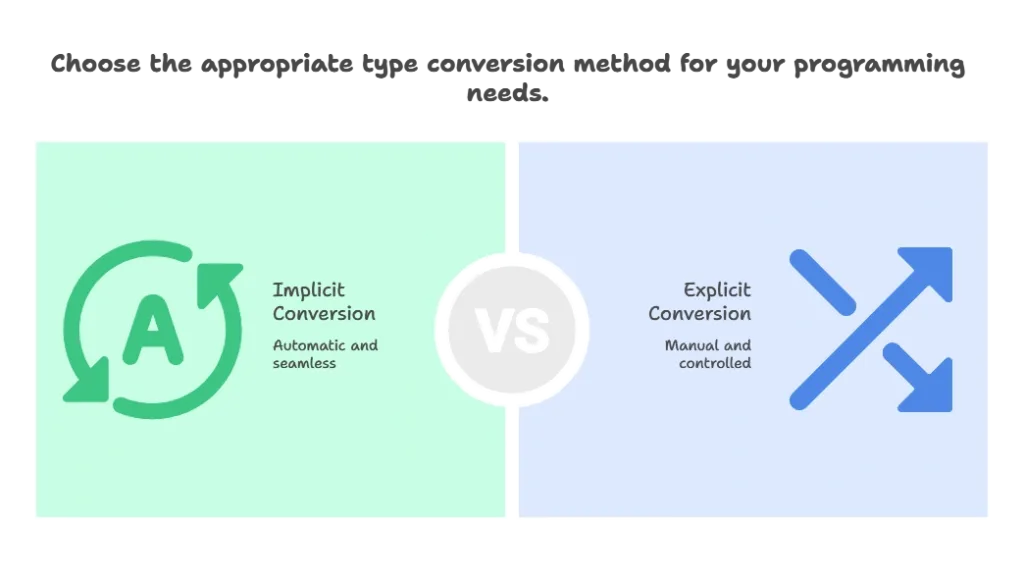Type Conversion in Python
Type conversion, also known as typecasting, is the process of converting data from one data type to another. In Python, you can convert variables from one type to another using built-in functions or by using the target data type as a constructor. This topic will cover everything you need to know about type conversion in Python, from basic concepts to advanced techniques.
Basics of Type Conversion
What is Type Conversion?
Type conversion refers to the process of changing the data type of a variable to another data type.
Implicit vs. Explicit Type Conversion
- Implicit Type Conversion: Python automatically converts data from one type to another when needed, such as during arithmetic operations.
- Explicit Type Conversion: Also known as typecasting, explicit type conversion is done explicitly by the programmer using predefined functions.

Basic Type Conversion Functions
int() Function
The int() function is used to convert a value to an integer data type.
# Example of int() function
x = int(5.8)
print(x) # Output: 5
float() Function
The float() function is used to convert a value to a floating-point data type.
# Example of float() function
x = float(5)
print(x) # Output: 5.0
str() Function
The str() function is used to convert a value to a string data type.
# Example of str() function
x = str(5)
print(x) # Output: '5'
Advanced Type Conversion Techniques
Converting Strings to Numbers
You can convert strings representing numbers to numeric data types using int() or float() functions.
# Example of converting strings to numbers
num_str = "10"
num_int = int(num_str)
print(num_int) # Output: 10
Converting Numbers to Strings
You can convert numeric values to strings using the str() function.
# Example of converting numbers to strings
num_int = 10
num_str = str(num_int)
print(num_str) # Output: '10'
Type conversion is a fundamental concept in Python programming, allowing you to manipulate data in different formats effectively. By understanding implicit and explicit type conversion, as well as basic and advanced type conversion functions, you can handle data of various types seamlessly in your Python programs. Remember to choose the appropriate type conversion method based on your specific requirements, and always ensure data integrity and consistency. Happy Coding!❤️
